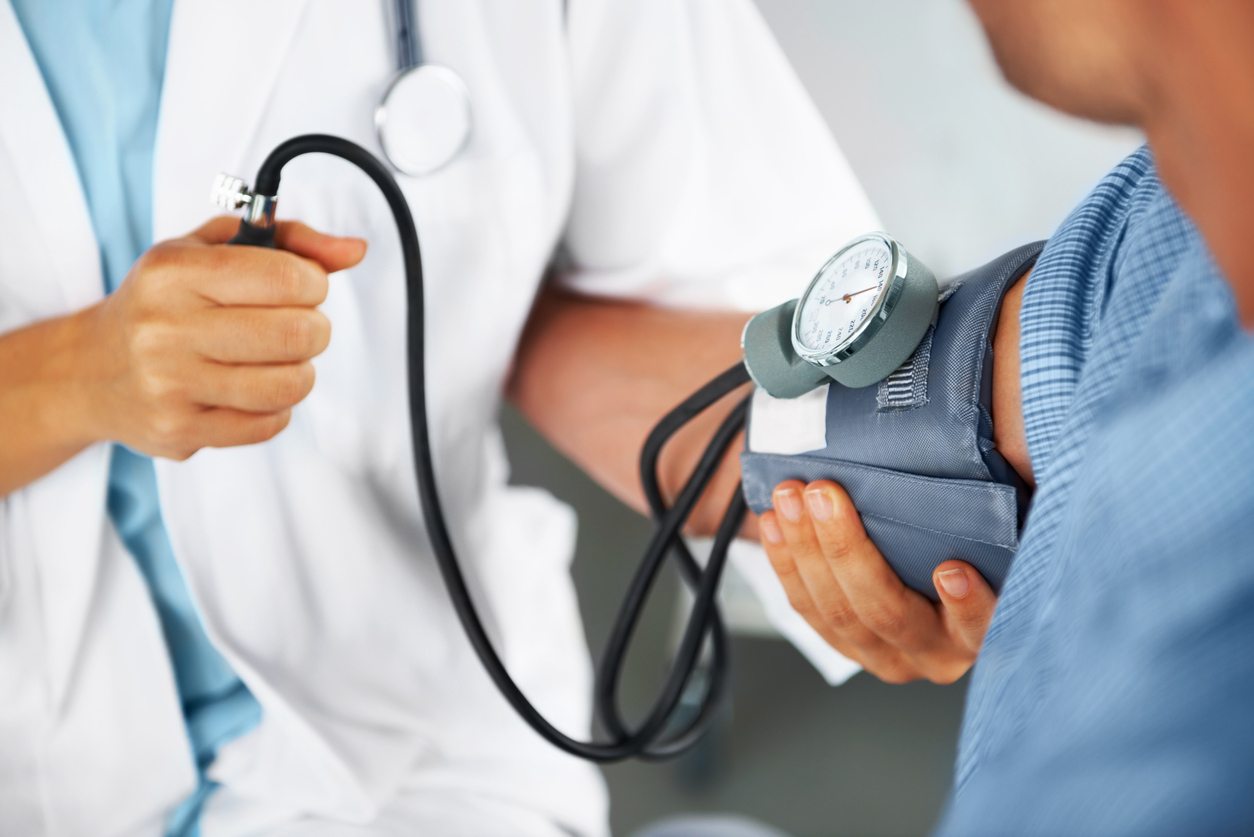Commitment + Clinical Leadership = Better Outcomes

Hypertension: What is it and How to Prevent it
Hypertension, also known as high blood pressure, is a common health condition in the United States. Almost half of the adults in the country have hypertension, and older adults are particularly at risk for developing it.1
Hypertension can become dangerous if not managed correctly. Luckily, there are some steps you can take to keep your blood pressure at a normal number.
Here are some facts about hypertension, as well as some ways to help prevent hypertension.
What is Hypertension?
Hypertension, or high blood pressure, is the term for when someone’s blood pressure is too high. Blood pressure is the pressure of your blood pushing against the arteries.1 Arteries are what carry the blood to and from your heart, and throughout the rest of your body.
It’s normal for blood pressure to rise and fall throughout the day due to factors such as stress, lack of sleep, or exercise.2 However, if someone is experiencing high blood pressure regularly, this is when they are diagnosed with hypertension.
Unfortunately, there are usually no early warning signs if someone is experiencing hypertension.3 In fact, hypertension is referred to as “the silent killer” because most people have no symptoms.4
If someone does experience hypertension symptoms, some of the common signs include4:
- Headaches
- Irregular heartbeat
- Fatigue
- Chest pain
- Nausea
Hypertension is dangerous because it can damage an individual’s circulatory system. This can increase the risk for serious health conditions such as heart disease and stroke.
Who is at Risk for Hypertension?
Certain factors that may put people at risk for hypertension are oftentimes manageable. According to the World Health Organization, here are some risk factors4:
- Eating an unhealthy diet
- Physical inactivity
- Tobacco and/or alcohol use
- Being overweight
If your doctor notices that your blood pressure is elevated, they may talk to you about your risk for hypertension. Your doctor might suggest a few lifestyle changes to ensure you stay healthy and reduce your risk for hypertension.
Understanding Your Blood Pressure
If you’ve been to a doctor’s appointment, you’ve most likely had your blood pressure taken. Nurses and technicians check your blood pressure by measuring the pressure in your arteries.5
When your blood pressure is being taken, you’ll be seated with a cuff placed tightly around your arm. The cuff will be inflated to stop the blood flow in your arm momentarily. If blood pressure is being taken manually, the nurse or technician will use a stethoscope on the major artery in your upper arm to listen to the blood flow. Once the cuff loosens, the blood flow will return to normal.
The nurse or technician taking your blood pressure is listening for the pressure of blood flow when your heart is pumping, as well as the pressure of blood flow when your heart is at rest.5
The blood pressure is then documented with the systolic number (the top number) and the diastolic number (the bottom number). The systolic number is your heart beating and pumping blood. The diastolic number is your heart at rest.6
An individual with a healthy blood pressure will have a systolic number of less than 120 and a diastolic number of less than 80. If your systolic number reads between 120-129, then your blood pressure is elevated, but not dangerously so.3
If a systolic number is between 130-139, and the diastolic number is between 80-89, this is considered hypertension. Furthermore, if the systolic number is greater than 140, and the diastolic number is greater than 90, this is a sign of stage 2 of hypertension.3
How to Prevent Hypertension
It is important to live a healthy, active lifestyle to avoid developing hypertension. Here are some ways to help prevent hypertension:
- Eat healthy. Eating a well-balanced diet is necessary to living a healthy life. Eating a diet rich in nutrients such as fiber and protein will help keep your body healthy and strong. Try to avoid foods high in sodium and saturated fat.
- Be active. Physical activity is a critical factor to ensure you remain healthy throughout your lifetime. Strenuous workouts and running are not necessarily needed to be active – simply walking and standing on your feet throughout the day can be a great way to stay active.
- Don’t smoke. Tobacco use raises your blood pressure and puts you at risk for heart attacks and strokes.7
- Get enough sleep. Getting enough sleep is necessary for your everyday health and functioning. Sleep also helps to keep your blood vessels and heart healthy.8
If you’re interested in more ways you or a loved one can help prevent hypertension, speak with your doctor.
Protect Yourself against Hypertension Today
Start living a healthier life today to help prevent hypertension and be sure to get your blood pressure measured regularly!
Saber Healthcare is an organization dedicated to providing consultant services to long term care providers. This article is for informational purposes and is not meant to be seen as professional advice. Please consult with a medical expert before relying on the information provided.
Sources
- https://www.cdc.gov/bloodpressure/facts.htm.
- https://www.verywellhealth.com/normal-blood-pressure-fluctuations-throughout-the-day-1764097#:~:text=Some%20variation%20in%20blood%20pressure,you%20slept%20the%20night%20before.
- https://www.heart.org/en/health-topics/high-blood-pressure/the-facts-about-high-blood-pressure.
- https://www.who.int/news-room/fact-sheets/detail/hypertension.
- https://www.mayoclinic.org/tests-procedures/blood-pressure-test/about/pac-20393098.
- https://medlineplus.gov/highbloodpressure.html.
- https://www.healthline.com/health/high-blood-pressure-hypertension/lower-it-fast.
- https://www.saberhealth.com/news/blog/why-sleep-is-important.
